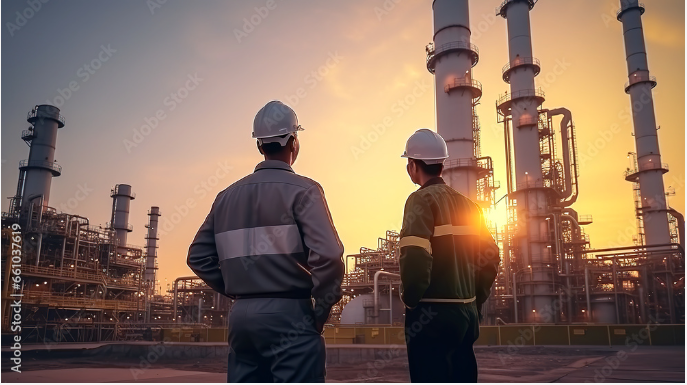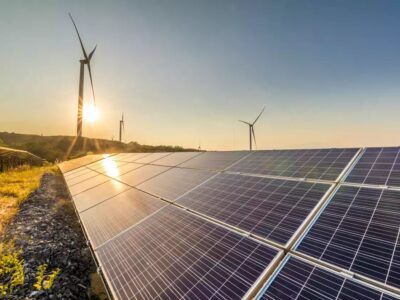
The global energy landscape is undergoing a profound transformation, driven by technological advancements in the oil and gas sector. Innovations in extraction technologies are not only unlocking new sources of hydrocarbons but also revolutionizing the efficiency, sustainability, and environmental impact of energy production. In this article, we delve into the cutting-edge technologies that are shaping the future of global energy production and their implications for the industry and the planet. As renewable energy sources gain momentum, the oil and gas sector is adapting to remain competitive and sustainable in this evolving landscape. Understanding and harnessing these technological advancements will be crucial for the industry to navigate the complexities of energy transition while minimizing environmental impacts.
Advanced Drilling Techniques
Traditional drilling methods have evolved significantly with the advent of advanced drilling technologies such as horizontal drilling and hydraulic fracturing (fracking). Horizontal drilling allows access to previously inaccessible reservoirs by drilling wells horizontally through rock formations. This technique maximizes hydrocarbon recovery and minimizes surface footprint. Hydraulic fracturing involves injecting high-pressure fluids into reservoir rocks to create fractures, thereby releasing trapped oil and gas. While controversial due to environmental concerns, fracking has dramatically increased the production of oil and gas in regions like the United States.
Digitalization and Data Analytics
The oil and gas industry is embracing digitalization and data analytics to optimize production processes, reduce costs, and improve safety. Advanced sensors, real-time monitoring systems, and predictive analytics algorithms are being deployed to enhance reservoir management, drilling efficiency, and equipment maintenance. Big data analytics enable operators to analyze vast amounts of data to identify patterns, optimize well performance, and predict equipment failures, leading to significant improvements in operational efficiency and asset integrity.
Enhanced Oil Recovery (EOR) Techniques
As conventional oil reserves become depleted, there is growing interest in enhanced oil recovery (EOR) techniques to extract more oil from existing reservoirs. EOR methods, such as steam injection, chemical flooding, and gas injection, help to mobilize and recover stranded oil by altering the reservoir’s properties. These techniques can significantly increase oil recovery rates, prolonging the life of mature oil fields and maximizing resource utilization.
Automation and Robotics
Automation and robotics are revolutionizing oil and gas extraction by increasing operational efficiency, reducing labor costs, and improving safety. Unmanned aerial vehicles (UAVs) and remotely operated vehicles (ROVs) are being used for pipeline inspection, facility maintenance, and environmental monitoring in remote or hazardous locations. Autonomous drilling rigs equipped with AI algorithms can optimize drilling parameters in real-time, leading to faster drilling rates and reduced downtime. Robotics also play a crucial role in minimizing human exposure to dangerous environments, mitigating operational risks, and ensuring compliance with safety regulations.
Sustainable Extraction Technologies
With growing concerns about climate change and environmental sustainability, there is a push towards developing cleaner and more sustainable extraction technologies. Carbon capture, utilization, and storage (CCUS) technologies capture CO2 emissions from oil and gas production processes and store them underground or repurpose them for industrial use. Renewable energy-powered drilling rigs, such as solar-powered rigs and wind-powered compressors, are reducing the industry’s carbon footprint and dependence on fossil fuels. Additionally, initiatives to minimize water usage, reduce methane emissions, and mitigate environmental impacts are gaining traction across the sector.
Innovations in oil and gas extraction technologies are reshaping the future of global energy production, driving efficiency gains, cost reductions, and environmental improvements. From advanced drilling techniques and digitalization to enhanced oil recovery methods and sustainable extraction technologies, the industry is undergoing a rapid transformation. By enrolling in an oil and gas courses in Kochi, such as those offered by esteemed institutions like Blitz Academy, aspiring professionals can gain the knowledge and skills needed to leverage these cutting-edge technologies and contribute to the future sustainability and efficiency of the oil and gas industry. Embracing these innovations will be crucial for meeting the world’s growing energy demand while addressing environmental challenges and transitioning towards a more sustainable energy future.











